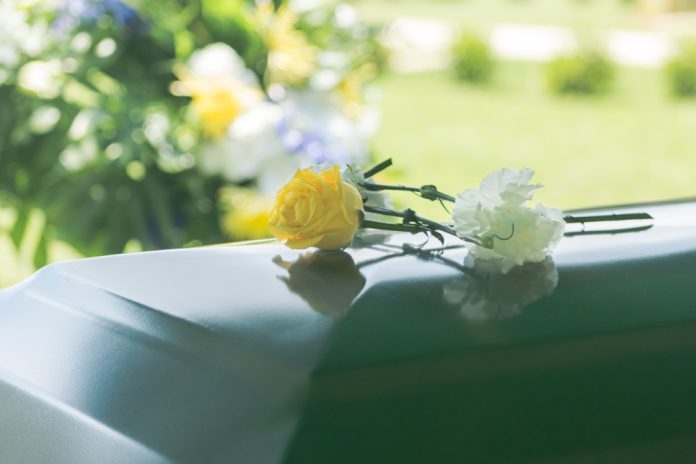
In a stunning legal victory that shook Massachusetts courtrooms, Karen Read has been acquitted of murder in the death of her boyfriend Boston Police Officer John O’Keefe, leaving prosecutors’ claims of a drunken hit-and-run in tatters.
Key Takeaways
- Karen Read was found not guilty of second-degree murder and manslaughter but received probation for a drunken driving charge.
- The prosecution claimed Read ran over O’Keefe with her SUV and left him to die in the snow, while the defense argued he was beaten inside a home and his body was moved to frame her.
- Expert witnesses testified there was no evidence of a vehicle collision, contradicting the prosecution’s central theory.
- The case gained national attention and sparked heated debate about potential police corruption and cover-ups.
- A previous trial resulted in a hung jury, with the second trial featuring fewer witnesses before reaching this verdict.
Sensational Verdict Ends Years-Long Legal Battle
The dramatic conclusion to the Karen Read trial has sent shockwaves through the American justice system after a jury delivered a not guilty verdict on the most serious charges she faced. Read was acquitted of second-degree murder and manslaughter in the 2022 death of her boyfriend, Boston Police Officer John O’Keefe. The prosecution’s case, which alleged Read drunkenly struck O’Keefe with her SUV and abandoned him to die in freezing temperatures, collapsed under scrutiny. Instead, Read was only found guilty of a drunken driving charge and will serve just one year of probation rather than the potential life sentence she was facing.
The case captivated the nation with its explosive allegations of police corruption and cover-ups. Read’s defense team presented a dramatically different version of events, suggesting O’Keefe was beaten to death inside the home of another police officer during a house party and then moved outside to frame Read. This counternarrative gained significant traction as defense experts systematically dismantled the prosecution’s collision theory. The trial marks a stunning rebuke to law enforcement’s handling of the investigation and has raised serious questions about evidence collection and witness reliability.
BREAKING NEWS
Karen Read sobs as she learns verdict in murder trialKaren Read sobbed in court as she was acquitted of murder over the death of her Boston police officer boyfriend.
Read, 45, was accused of drunkenly ramming her SUV into her boyfriend, former Boston police…
— News News News (@NewsNew97351204) June 18, 2025
Competing Narratives and Expert Testimony
Throughout the trial, jurors were presented with starkly different accounts of what happened on that fateful night in January 2022. Special prosecutor Hank Brennan portrayed Read as a vengeful lover who committed a heinous act. “She was drunk. She hit him and she left him to die,” Brennan told the court, attempting to paint Read as the only person who could have saved O’Keefe, but chose not to. The prosecution built their case around the theory that Read’s Lexus SUV struck O’Keefe after an argument, leaving him fatally injured in the snow.
“There is no evidence that John was hit by a car. None. This case should be over right now, done, because there was no collision,” argued defense attorney Alan Jackson.
The defense team methodically challenged the prosecution’s narrative, bringing forward multiple expert witnesses who testified that physical evidence simply did not support the collision theory. These experts examined Read’s vehicle, O’Keefe’s injuries, and the alleged scene of the incident, concluding that the evidence was inconsistent with a vehicular impact. This testimony proved pivotal in swaying the jury, who ultimately rejected the prosecution’s version of events after extensive deliberation.
A Case That Divided Communities
Brian Albert, the homeowner where the party occurred and a fellow officer, expressed outrage following the verdict. “The result is a devastating miscarriage of justice,” said Albert, who had been implicated by Read’s defense team in their alternative theory of the crime. The case created deep divides within the community, with supporters of Read appearing at court wearing pink, her favorite color, while others maintained unwavering support for law enforcement’s original narrative despite mounting evidence to the contrary.
“No one has fought harder for justice for John O’Keefe than I have — than I have and my team!” declared Read following the verdict, visibly emotional after years of legal proceedings.
This case marks the second trial for Read after a previous jury became deadlocked, resulting in a mistrial. Legal observers note that the second trial featured fewer witnesses but more focused expert testimony. Read’s father attributed the different outcome to increased public awareness and scrutiny of the case, which had attracted significant media attention and online commentary. The verdict represents a rare instance where allegations of police misconduct and evidence tampering successfully overcame what initially appeared to be a straightforward criminal case.







